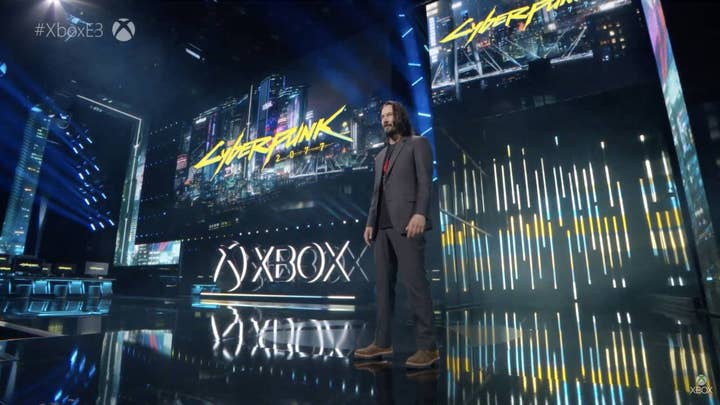How to get a job in games PR
The GamesIndustry.biz Academy looks into how to get a job in games PR and how to become a publicist
Finding a job in the games industry is no easy task. Our guides can help you to find the right path to the games industry job of your dreams. You can read our other in-depth guides on how to get a job in the games industry on this page, covering various areas of expertise.
On the surface, games public relations may look like it's about rubbing shoulders with the right people and trying to tell your story in a crowded room -- but it's much more than that. Games PR is a drop of storytelling, a hint of creativity, a dash of sales, a bit of people management, and a lot of hard work.
The core objectives of anyone working in games PR is to cut through the noise, generate awareness for a client, and help establish media relations through powerful, creative campaigns. Ultimately, games PR helps publishers and developers to sell their products, and in doing so tackle event management, communication roadmaps, crisis prevention, and a whole lot of spreadsheets.
Games PR has evolved alongside a changing media landscape, and the lines are now blurred. Where does PR end and marketing begin? PR professionals don't just work with the press anymore either; working with communities and influencers is increasingly important, and communication strategies no longer solely focus on press releases and traditional media.
As a career, games PR is also an opportunity to be at the heart of the games industry, crafting narratives that, when handled properly, will be remembered for years to come.
What education do I need to get a job in games PR?
As is often the case with creative careers, education doesn't matter as much as the ability to demonstrate you can do the job. However, there are some backgrounds that will put you one step ahead.
Audra McIver is the co-founder of games PR agency Plan of Attack, and she has nearly 15 years of experience in games PR. She has a degree in English, and recommends that as a great place to start.
"It is a lot of writing press releases, pitches, emails and proposals, so it's definitely good to have a background in that," she says. "But degrees in marketing, business or communications are all good places to start in terms of what to study in order to get into PR."
Stephanie Tinsley Fitzwilliam, founder of Tinsley PR, has a degree in communications, with an emphasis on public relations. However, she believes these qualifications aren't strictly necessary.
"I don't feel that formal training is required to get into public relations in the games industry," she says. "And that's because some of the skills you need will just be provided as part of your training on the job."
Gemma Cooper, UK PR Manager at Bandai Namco, adds: "Doing a public relations or communications degree may give you an extra boost, but once you're in a role a lot of companies will offer to support you on various training courses. There's the option to learn about interview training, crisis management and communications while you're in a role."

There's no linear path to games PR. Anita Wong, head of PR at games agency Indigo Pearl, went to university with plans of becoming a journalist, while Cooper studied geography. Izzy Jagan, account executive at M&C Saatchi, recommends "education you feel will personally aid your development." This echoes the path taken by Ravi Vijh, account director at games PR agency Bastion, who studied political science.
"I enjoyed learning about politics, but I knew I would never want to work in politics," Vijh says. "What doing that degree gave me was core transferable skills I use every day -- doing research and being well read on your subject matter, an ability to write and communicate effectively, and an ability to think problems and ideas through and present them to a group."
What do I need to get noticed in games PR?
- Seek work experience and entry-level positions
With or without a degree, you will need to be proactive to find a job in games PR. Internships are a valuable tool, for instance, and definitely one of the best ways to gauge both your interest and aptitude for the job.
"Internships after university were so crucial for me, as it was a sure-fire way to see what the role meant first-hand, the company culture, and if I even liked the job," Wong says. "Work experiences are honestly the fastest way to see if the role suits you, to learn about the different tasks, and for the company to see if you fit into the team. Even if you don't make it there full-time, it's experience on your CV that another company will appreciate."
"Even a week or two of work experience during a summer will provide a platform"
Ravi Vijh, Bastion
Both agencies and internal teams tend to develop their staff from entry-level roles, so it may be easier than you think to find a first experience.
"There tend to be positions open that don't require a ton of experience right off the bat for junior folks looking to get a foot in the door," Tinsley Fitzwilliam says. "Many journalists in games have made the jump to the publishing side, so if you're not just out of college but have good writing skills and possess a knowledge of the industry landscape, that can be a value add for sure."
- Consider volunteer work to get started
Another way to get noticed is volunteering -- at industry events for instance, which provide networking opportunities that can lead to paid work. Gemma Cooper did just that, building her career from volunteer work in esports.
"Eventually I was a contractor for some major esports events, including Dreamhack, EGL, Insomnia and Gfinity, and I'd managed to make a small network of industry contacts as a result," she says. "I applied for a placement at Warner Bros during my second year of university, but knowing that I was likely up against candidates who were studying for marketing and communications degrees. However, Warner seemed to be impressed with my background in esports, so I got the placement."
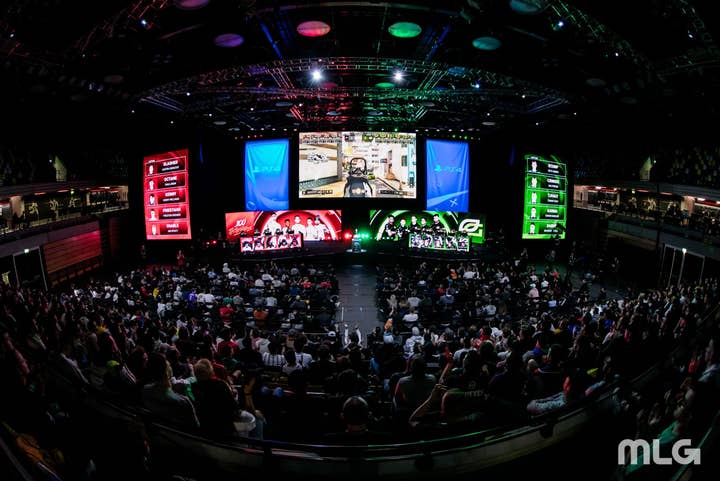
What qualities and skills do I need to work in games PR?
- You need to be a team player with strong social skills
While junior games PR roles don't always require experience, there are specific skills that will go a long way. Fundamentally, PR is a people business, so you need to enjoy meeting and talking to people from all walks of life.
"If you really don't like people, PR probably is not for you," McIver says. "I do know people who work in games PR who are not super social. You can still do an excellent job, but I think it might be a little bit more trying on you on a day-to-day basis if you're more of an introverted person."
"If you really don't like people, PR probably is not for you"
Audra McIver, Plan of Attack
Networking and talking to people doesn't always mean having face-to-face meetings, but Izzy Jagan points out that simply networking on social media is no substitute for the "genuine relationships" that all good PR professionals should try to nurture. That applies to the people you reach out to as part of your job -- games journalists, for example -- but also to your own team, as PR is very much a team game.
"If you're a team player and you can adapt well to change, it will help massively as sometimes things may not always go the way you want them to," Cooper says. "You need to rely on your team to support you through the more challenging elements."
- You need to be passionate and well informed
While many aspects of games PR can be taught or improved, there is one thing you can't learn: a genuine interest in the games industry.
"It sounds like a given, but if you're really into video games and you read the news and you play games, you have a better handle on what's going on," McIver says. "That's always very important, especially in this ever-changing industry."
Wong points out that it's not only about playing games, but also knowledge of developers and studios and streamers. Enthusiasm is not easily faked. You will need to read about games, talk about games, write about games, sometimes even games you don't like -- you can't do all of that without passion.
"Be well read, and these days well watched," Vijh adds. "You need to understand the media landscape, the hot topics of the moment, and how best to communicate those to different audiences. By reading different publications and watching different YouTubers, this will help provide that picture."
- You need to be able to manage your stress levels
PR can be a harsh job. You will need to perform under pressure, on multiple tasks at once, and you will not always be rewarded for your hard work. When that happens, you'll have to keep things (and yourself) under control.
"You really need to be able to let things roll off your back, because sometimes there will be stressful situations, and clients will be upset about something that's outside of your control," McIver says. "Especially on the agency side, at any given time you have clients that love you and you have clients that are upset with you. You have to try to not internalise it so much, because it'll drive you crazy."
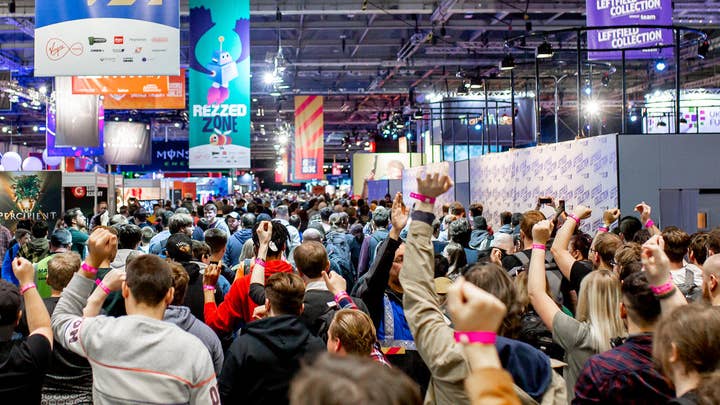
Cooper adds: "When things don't go your way, it's important to be able to pick yourself up, dust the negativity away and embrace and learn from what went wrong."
- Understand the difference between in-house and agency PR
The qualities required to work in games PR may vary depending on the role. That is particularly true of the difference between in-house teams -- at a publisher or a developer, for instance -- and PR agencies. According to McIver, people used to working in-house can find it difficult to switch to the agency side.
"You just have to wear a lot of different hats in agency PR, whereas in-house is just a little bit more focused"
Audra McIver, Plan of Attack
"You just have to wear a lot of different hats in agency PR, [whereas] in-house is probably just a little bit more focused," she says. "On the agency side, it's a little bit more rough and tumble because you really have to think on your feet. You've got several different clients, and all of those clients should ideally feel like they are your only client. They all have to be equally important."
Cooper has worked in development studio PR, games agency PR and publisher PR, and has found it "incredibly interesting" to see how different they all are.
"In studio PR, I was crafting and creating the PR communications plan for the entire game, globally -- but I could do this by just popping upstairs and looking at the state of the game and altering my communications depending on its strengths and weaknesses," she says. "By contrast, at a PR agency you are sometimes far removed from the game and rely on your own skills and contacts to pitch in and sell the products to external media and influencers.
"Now at a UK based publisher, I am the main contact between media and influencers for the entirety of UK and Ireland, but I don't often go to the development studios. The qualities needed do vary between the three, but I think it's entirely possible to adapt to all of them -- as I have done."
What are the common misconceptions about games PR?
If you've been focusing on a specific career, it's easy to have an idealised vision of it that is very different from the reality. That's why our interviewees have recommended internships -- you get to experience what it's really like.
For games PR, one of the most common misconceptions is that the job is about travelling the world, playing games and going to parties -- a misguided perception that is also common in games journalism.
"You don't get to play a lot of games," Jagan says. "It's lots of admin, but the fun parts make it worth it. I got to work on my favourite game of all time, Kingdom Hearts, for example -- but it also took me about five days to do the report."
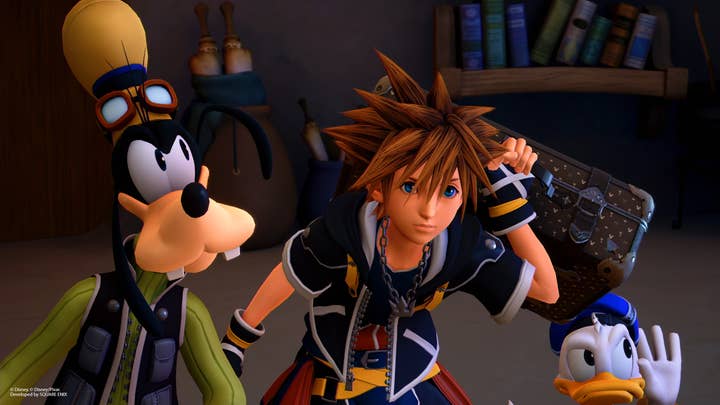
Vijh continues: "There is glitz and glamour in PR, but there's also a lot of hard work. There is a lot of creating reports, scanning for coverage and creating documents. It is all worth it when a campaign comes together, but be prepared for an element of grind."
It's worth noting that not all campaigns will be successful, and you can be sure to take some of the blame when that happens. The big announcement you spent late nights on because the studio sent you assets at the last minute and you had to start from scratch? The developer may feel you didn't get enough impressions, or the press is unhappy because you sent it at the wrong time -- that's if they pay attention at all.
"It can be a very fulfilling job, but if you're launching a game and it doesn't review well, or if you're having trouble getting editors to even look at it, that can be very frustrating," McIver says. "You're doing the work, you're putting in the time and effort, and that doesn't necessarily mean that you will get the results.
"That can be difficult, and a lot of times when something like that happens, PR really takes the blame for it. Even though it isn't really our fault, someone's got to be the fall guy and that's always gonna be the publicist."
Not only does games PR not always reap the benefits of their hard work, they might encounter negative perceptions of the profession from clients, journalists, and even players.
"The most blatant misconception on the client or player side is that we control everything the media writes, or that we can just pay the press or entice them with a crappy bag of swag," Tinsley Fitzwilliam says. "On the press side, there's often a misconception that everything we say is a lie, which flies in the face of the fact that, if you are going to be successful at this job, you can't lie. The public always finds out about lies. Always."
Advice for new and aspiring games PR professionals
- Reach out to people in the industry
If you're considering a career in games PR, who you talk to is as important as what you do, and a healthy combination of both is the best path to your goal.
"Creating a Twitter or LinkedIn [profile] and starting to make connections with people online is a good place to start," Cooper says. "But if you can afford visiting an event like EGX or Rezzed, they're fantastic places to start making connections. Chat to everyone on the booth, and make sure you visit the careers area and chat to professionals as much as you can -- get their email addresses and follow up and connect with them.
"You can also email developers and studios near where you're based and ask if they offer work experience or placements -- a surprising number of places now do. It'll be a challenge, there will be ups and downs, rejections and disappointments, but it's incredibly rewarding when you see your name on the credits once a game is out."
- Work hard, be nice
Indigo Pearl is one of the most successful games PR agencies in the UK, representing clients such as Activision Blizzard and Devolver Digital. The company's official motto is "work hard, be nice," and that mentality will stand you in good stead.
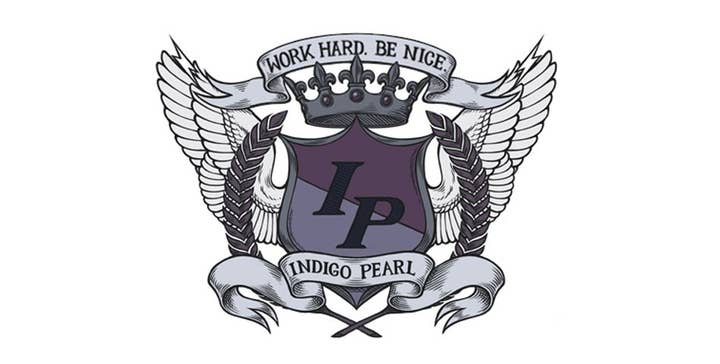
This means remaining nice even in difficult situations, even with people you dislike. As our interviewees touched upon already, PR is a people business, so keep that in mind at all times.
"You should never burn bridges because you never know what's gonna happen," McIver says. "You should always, always think about the way you present yourself, and think about the way you present your company and your clients. And... just don't be a jerk! That never ends well.
"Swallow your pride sometimes and go with it, because you never know where people will end up in the games industry in particular. It's grown a ton but it's still rather small -- people know each other."
- Be open-minded, curious and speak up
Games PR is a creative job in more respects than people think, so finding ways to feed your creativity will help your ideas to stand out.
"Be curious," Wong says. "And read a lot -- read games websites of course, but also read 'irrelevant' things. Read current news, read about new gallery openings, pay attention to the latest trends in films or books. You never know if it'll spark off an idea for the right venue for your next event or the next big campaign idea."
When you have that big campaign idea, don't let your experience stand in the way of letting people know what you're thinking. According to Wong, it's important to learn as much as possible early in your career, but companies also thrive on fresh ideas from new talent.
"You never know when your idea, no matter how small, can spark off another in the group"
Anita Wong, Indigo Pearl
"[When I started] I would stifle an idea because I'd think it was impractical or I was too inexperienced," she says. "But you never know when your idea, no matter how small, can spark off another in the group."
For Jagan, a persistent issue early in her career was imposter syndrome: "I didn't really believe that I 'belonged' there, or that it was my place. As a queer woman of colour impostor syndrome is real, but I would go back and tell myself that I deserve to be here. There is a space for you, and there are ways you can make your mark -- whether it's allowing a competition form to include more gender boxes than male and female, or integrating diversity into a wider PR campaign."
- Know your strengths and how to sell them
Speaking up and trusting your ideas goes hand in hand with being aware of your qualities, and making use of them to land the right job.
"Consider your strengths as a person and think about how that can be of value to a team," Tinsley Fitzwilliam says. "When I was younger, I focused my interviews on how the job was going to benefit me and how it fit what I wanted, instead of considering what I was good at and how that could help the team be more successful."
Vijh interviews applicants on a regular basis, and he has invaluable advice about the core strengths that will help you to land your first job.
"I'll ask questions aimed at finding out whether the person is process-driven, if they are creative, are they prepared to listen, how well they can communicate. These are tangible skills which are hard to demonstrate on a CV but vital to succeeding in a PR role.
"If I look at the people we've taken on in the past 18 months, one was on a PR apprenticeship, one came from a large agency outside games working in a different sector, two were former journalists, and one simply got in contact with me through LinkedIn with no experience whatsoever, just a passion and knowledge of esports. If you have passion, you can always find a way in."
You can find all our in-depth guides on finding a job in the games industry on this page. Want to talk about your job and be featured in our guides? You can get in touch at academy@gamesindustry.biz
